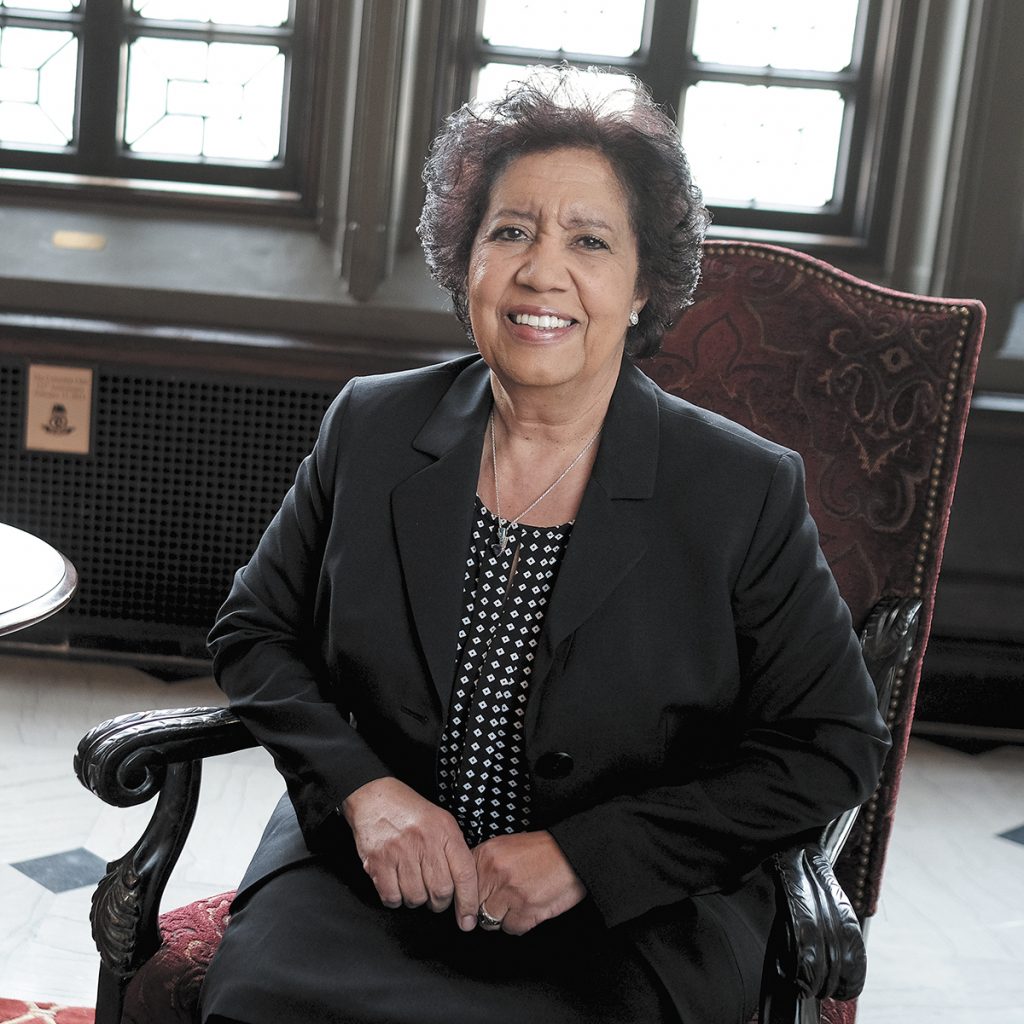Subscriber Benefit
As a subscriber you can listen to articles at work, in the car, or while you work out. Subscribe NowA trailblazer in the Indiana judiciary, Judge Cynthia Ayers was the first African American presiding judge for the Marion Superior Courts. Colleagues testify that her quiet demeanor, dignity and grace on the bench serve as a model for her peers and for younger attorneys. Ayers for years has been a leader in the wider legal community: she has served as president of the Indianapolis Bar Association and is active in the Indiana State Bar Association. Additionally, for decades she has helped prepare lawyers in training both as a professor at IU McKinney and as a longtime character and fitness bar examiner.
What is something most people don’t realize about being a judge?
A judge’s job, by necessity, includes isolation both in public and private life. Rules of ethics require that a judge is prohibited from discussions about pending cases. Even in personal life, a judge must always act to promote confidence in the judiciary and avoid even the appearance of impropriety. Most people probably don’t realize or recognize these limits on judicial life.
What are you most looking forward to when the Indianapolis courts move to the new justice center?
I am excited about finally having access to the kind of 21st century technology that will make information about casefiles much more accessible and contacts with attorneys and pro se litigants less difficult.
What do you get from teaching and mentoring?
Over the years, I have mentored and taught hundreds of students. My biggest reward is to see them grow from anxious first- and second-year students to confident, successful attorneys. I have always gained more from the positive experience of working with students than I may have ever bestowed on them.
If you hadn’t pursued a legal career, what do you imagine you might be doing?
I would have been an anthropologist and a university professor.
If you could change one thing about the law in Indiana, what would that be?
In criminal matters, I would like to see more opportunities for diversion to treatment programs for those individuals who suffer from mental illness and substance abuse.
What do you most like to do when you have free time?
I like to study French online, watch foreign films, attend Pacers games, read, workout and go shopping.
What’s your best advice for someone who aspires to be a judge?
My best advice would be to get as much litigation experience as possible in different areas of the law. It is worthwhile to spend time observing trials and to try to secure employment as a court bailiff or clerk to learn the day-to-day operations of court life. Volunteering to sit as a judge pro tempore would also be very helpful.
Who is someone who mentored you, and what did you learn from them?
I began my judicial career by sitting as a judge pro tempore for the Hon. Clarence Bolden Sr. He taught me to be patient, to keep my calm on the bench even when the situation is tense, to listen to all the evidence and to exercise discretion fairly based on the entirety of circumstances.
What advice would you give your younger self?
I would advise myself to listen to my parents.
What’s the most rewarding thing about being a judge?
My most rewarding experiences since becoming a judge have been knowing that I have done the best to be fair and that my decisions have had a positive impact not only on the litigants before me, but also on the community. Just outcomes inspire faith in our system of justice and strengthen democracy.•
Read more Leadership in Law profiles.
Please enable JavaScript to view this content.

